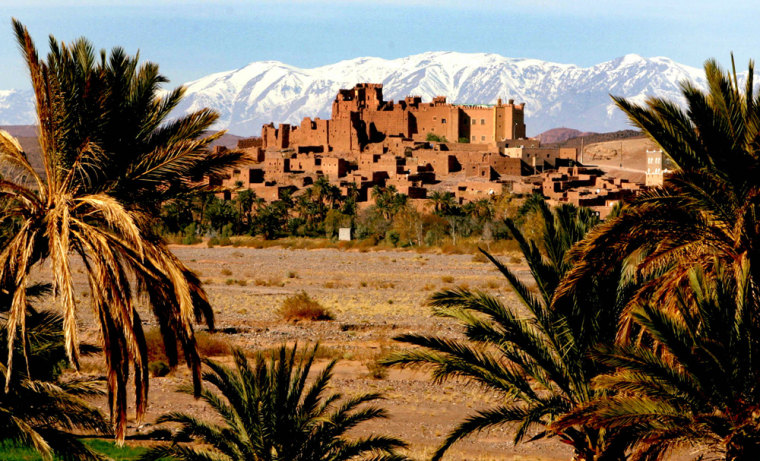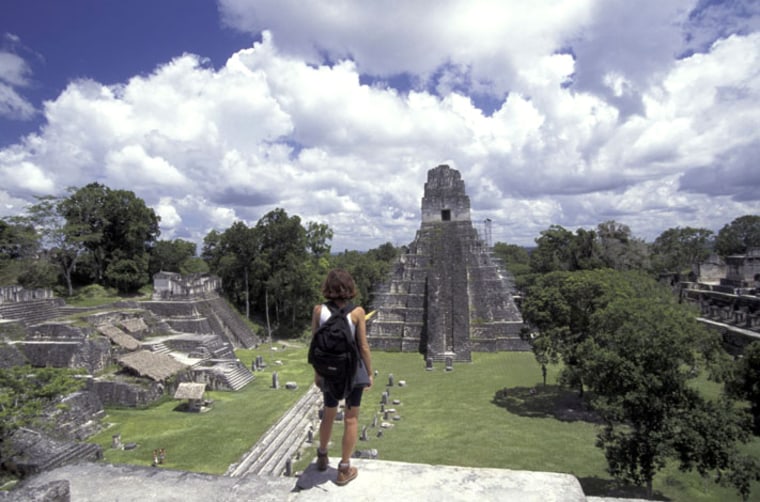Nashville, Tenn.-based Tim Leffel, author of “Make Your Travel Dollars Worth a Fortune,” skipped London and Lisbon this summer, and instead, took his wife and daughter on a two-week trip to Guatemala. There, they stayed in a "gorgeous" hotel which featured a panoramic view of a volcanic lake for $60 a night. He estimates the cost of the entire trip, during which they visited Mayan ruins and colonial towns, and ate inexpensive but tasty meals, was $3,000.
"People don't think of [Guatemala] as a family destination," Leffel says, but, as in other Central and South American countries, "it's an easy trip, and the dollar is still strong."
There's little doubt the iconic museums and landmarks of Europe are a huge draw for Americans planning international vacations. But with the dollar worth significantly less than the euro, that trip to Paris or Barcelona can take a toll on one's bank account, diminishing buying power for everything from the price of crepes to admission to the Tate Modern to a room at the Four Seasons.
Still, a weak dollar and steep prices won't likely keep the 63 million Americans that travel abroad each year from doing so. For those who can't contain their wanderlust, but are watching their wallets, industry experts recommend choosing a destination where the dollar remains strong, considering packages or cruises where rates are set far in advance, and exploring unconventional locales. With proper planning, you can expect to be pleasantly surprised.
Choosing a destination
One Euro is worth roughly 1.5 American dollars. However, in history-rich countries like Thailand, Morocco and Hungary, the local currency is worth substantially less than the dollar, allowing a savvy American tourist the opportunity to experience a new culture for a reasonable cost.
At the Oriental, a luxury hotel in Bangkok, a room with river views, a personal butler and daily fresh flowers is available in May via an Internet special for $269 a night, or about 7,990 Thai Bahts. A similar room in London's Hyde Park Oriental is available during the same time period for about $1,330 per night. Though the food offered by local street vendors and small restaurants is renowned for its worldliness, a haute cuisine meal of duck egg confit, duo of lamb, French farmhouse cheeses and petits fours can be had in Bangkok for 1,050 Baht, or $35. The strength of the dollar in a country like Thailand means a substantial savings in luxury accommodations and food unavailable in other high-traffic vacation spots.
Though considering exchange rates is a crucial part of stretching your dollar while on vacation, Henry Harteveldt, a travel industry analyst for Forrester Research, warns against choosing a destination based on that factor alone. Instead, he recommends also comparing airfare prices through Web sites like kayak.com and contacting a travel agent who might be able to secure insider deals with hotels and airlines unavailable to the general public.

Value is also a highly important factor. Vacationing in a country where the dollar is strong but amenities and services are poor, attractions are lacking, or security and safety are an issue may save money, but will likely cause unnecessary stress.
For some, the best way to avoid this is to choose a cruise. Bob Whitley, president of the United States Tour Operators Association says that's because "you know exactly what your vacation is going to cost." Since packages and cruises are negotiated in advance of the actual travel date, and are sometimes in dollars, they are immune to currency fluctuations. A good deal often includes the cost of food and accommodations in addition to travel.
New sights and cultures
Bargains can also be found off the beaten track. Tourists have become more adventurous, with river cruises along waterways like the Yangtze, Nile and the Rhine, which frequently encourage exploring villages along the way.
While European spots remain popular among travelers — a package to Italy has been the bestseller for the tour operator Globus since 2004 — the company has seen a trend toward vacationing in Central and South America. Their hottest sellers in this category include a trip to Machu Pichu and a cruise around the Galapagos Islands.
Though the weak dollar may prompt Americans to try alternatives like these, Harteveldt speculates the easy exchange of information and experiences across borders has also served to expand travelers' horizons.
"If you see [someone] ziplining across a rainforest or traipsing through China, it inspires you," he says, referring to reality television and cable programming. "More of the world is being opened up."
